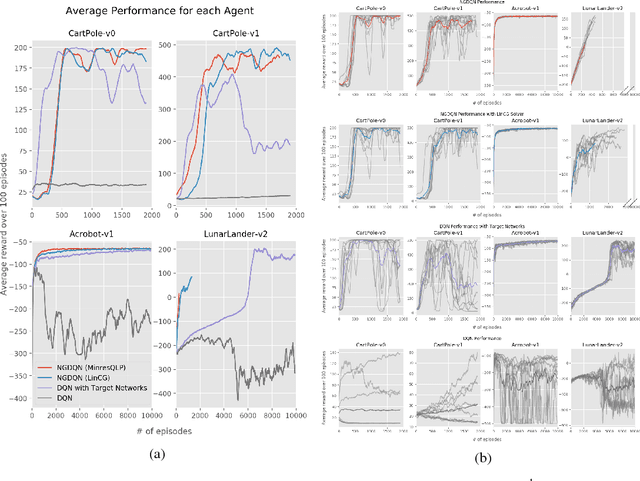Natural Gradient Deep Q-learning
Paper and Code
Mar 20, 2018



This paper presents findings for training a Q-learning reinforcement learning agent using natural gradient techniques. We compare the original deep Q-network (DQN) algorithm to its natural gradient counterpart (NGDQN), measuring NGDQN and DQN performance on classic controls environments without target networks. We find that NGDQN performs favorably relative to DQN, converging to significantly better policies faster and more frequently. These results indicate that natural gradient could be used for value function optimization in reinforcement learning to accelerate and stabilize training.
 Add to Chrome
Add to Chrome Add to Firefox
Add to Firefox Add to Edge
Add to Edge